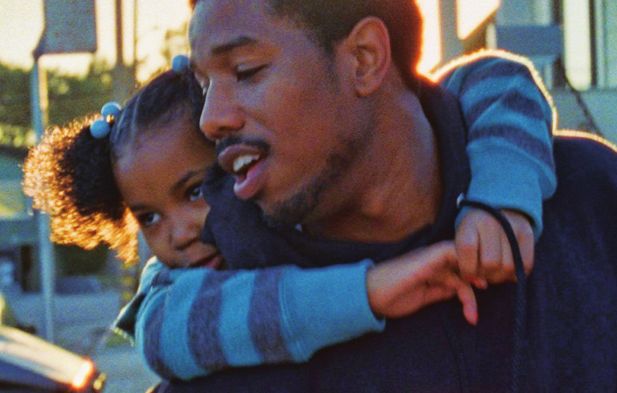
Mixed intentions mute Fruitvale’s power
FILM | Chuck Koplinski
Fueled by a sense of anger and with the resolve to activate, Ryan Coogler’s Fruitvale Station is an accomplished debut feature that, despite its good intentions, left this viewer with an uneasy feeling. Depicting the last day in the life of Oscar Grant, a young African-American who was senselessly killed by a transit officer in Oakland on New Year’s Day 2009, the film does a fine job of slowly building toward the tragedy. We get to know the victim through a series of everyday moments that cast him as an eager son, untrustworthy boyfriend, devoted father and struggling young man. This strategy is a good one. Coogler sets out to give us a multifaceted character that, despite his flaws, is good at heart. While this may have been the director’s conscious intention, he skews our view of Grant toward the positive in a manipulative manner that left me feeling that I was meeting the filmmaker’s ideal version of his subject rather than an accurate one.
As Grant, Michael B. Jordan (Chronicle, TV’s Friday Night Lights) is captivating from the start. He fully inhabits this troubled young man who is held back by his own shortcomings. His girlfriend Sophina (Melonie Diaz) harangues him about being unfaithful and not being financially able to help raise their daughter, while his mother Wanda (Octavia Spencer) struggles to be optimistic about her son’s future what with his troubled past, which included a short stint in jail. Having recently been fired from his job, Grant is struggling to right his own ship, eager to turn over a new leaf but unsure how.
Over the course of the day and night the film covers, we see Grant at turns being helpful and self-serving. When his efforts to pick up a young woman are rebuffed he attempts to save face by offering her advice regarding a meal she wants to prepare for her boyfriend; he lies to his mother and Sophina on numerous occasions; he dumps a huge stash of marijuana before he can sell it as a first step toward going straight; he goes out of his way to blame others for his troubles. The effort to provide a warts-and-all vision of Grant is an admirable one but with the inclusion of an incident that never happened (we see the young man comfort a dog who has been hit by a car) and the implication that his intentions to redeem himself are sincere, after seeing evidence to the contrary, this approach ultimately does the film and the man a disservice.
Without question, the movie’s third act is a gripping one and Coogler does a great job ratcheting up the tension as the inevitable tragedy approaches. The confusion that occurs on the Bay Area Rapid Transit platform of the title is palpable and rendered with such a powerful degree of realism that we get the sense that we’re eavesdropping on events we want desperately to stop but can’t. His portrayal of the police officers involved in the incident is an evenhanded one. He presents them as confused, overwhelmed and impulsive; the shooting occurs far too quickly. The officer charged and convicted of the crime (he only spent 11 months in jail) claimed that he intended to grab his Taser to subdue Grant, but pulled his gun instead. The fact that Coogler leaves out the detail that one of the victim’s friends heard the cop say, “I’m going to tase him,” is conspicuous in its absence. And yet, while Fruitvale may fudge a bit where facts and circumstances are concerned, there’s no denying that it’s a timely document that admirably keeps vital societal issues that must be addressed in the spotlight.
Contact Chuck Koplinski at [email protected].